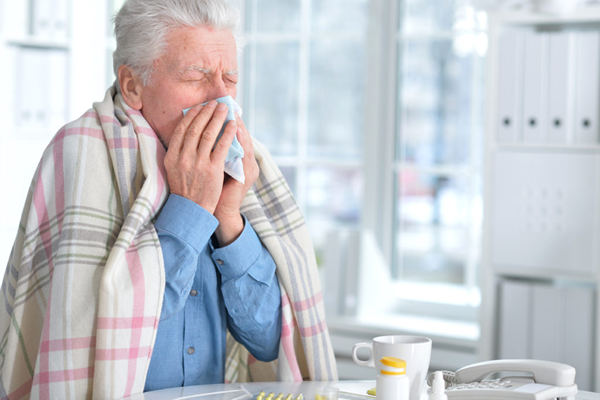Winter can bring unique challenges, especially for those undergoing cancer treatment. The colder months often feel isolating and come with added risks like cold sensitivity, flu season, dehydration, and seasonal affective disorder (SAD). Understanding these challenges and finding ways to address them can help you navigate this season with greater ease.
Cold Sensitivity
Chemotherapy and radiation can increase cold sensitivity, making you more susceptible to conditions like:
- Hypothermia: When your body loses heat faster than it can produce it.
- Peripheral Neuropathy: A side effect that reduces your ability to feel how cold it is, increasing the risk of frostbite.
How to Manage:
- Wear layers of warm, insulating clothing, including gloves and thermal socks.
- Limit time outdoors in freezing temperatures and monitor your exposure.
- Stay in well-heated environments to maintain a safe body temperature.
The Flu
Flu season peaks during the fall and winter, coinciding with holiday gatherings and crowded indoor spaces. Cancer care patients are more vulnerable to severe flu complications due to weakened immune systems.
How to Protect Yourself:
- Get your annual flu shot.
- Avoid close contact with people who are sick.
- Wash your hands frequently and use hand sanitizer.
- Wear a mask in high-risk settings.
Dehydration
Indoor heating systems create dry air, increasing the risk of dehydration. This can be especially challenging when undergoing treatment, as hydration is essential for your body to function optimally.
How to Stay Hydrated:
- Drink plenty of water throughout the day.
- Try flavored electrolyte drinks if plain water is unappealing.
- Incorporate hydrating foods like soups, fruits, and vegetables into your meals.
Seasonal Affective Disorder (SAD)
Reduced sunlight and limited outdoor activity during winter can negatively impact mood, leading to symptoms of depression. For cancer patients, who may already be coping with mental health challenges, the effects of SAD can feel even more pronounced.
How to Support Your Mental Health:
- Spend time outdoors on sunny days, even if it’s just a short walk.
- Engage in activities that bring you joy, like hobbies, reading, or connecting with loved ones.
- Consider light therapy to simulate natural sunlight indoors.
- Lean on community support groups or counseling services for emotional strength.
Coping with cancer is challenging at any time of the year, but winter can add extra hurdles. Prioritize your health by addressing physical and mental well-being. Wear warm clothing, stay hydrated, protect yourself from illness, and find ways to maintain your emotional balance.
Speak with your doctor about additional steps you can take to stay comfortable and healthy during the colder months. Remember, you’re not alone—reach out for support when needed.
published: Nov. 29, 2024, 9:43 p.m.

